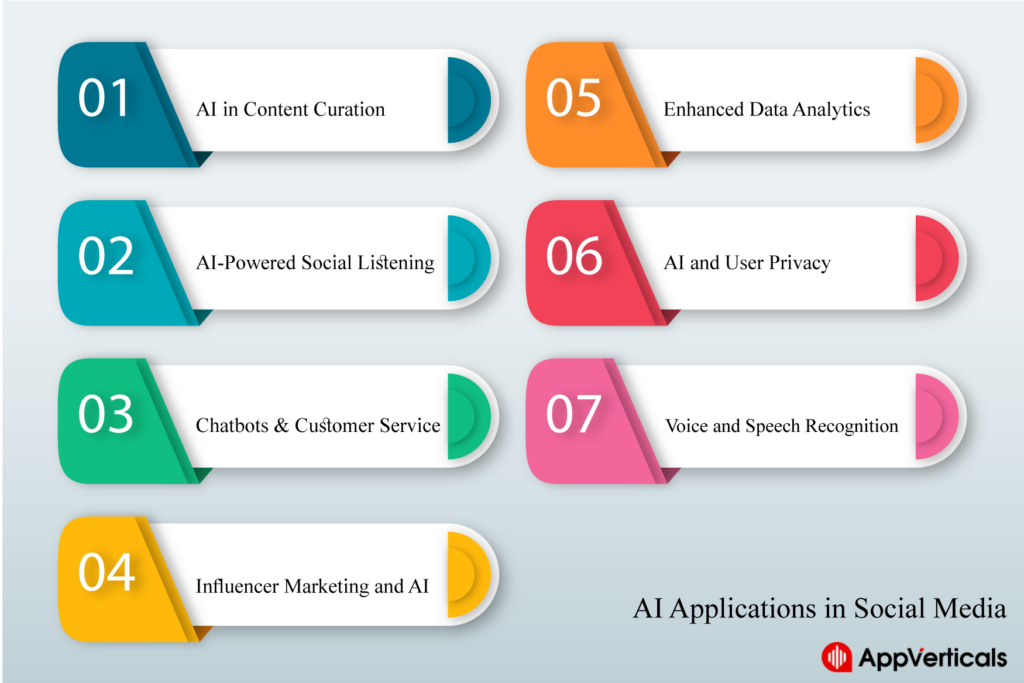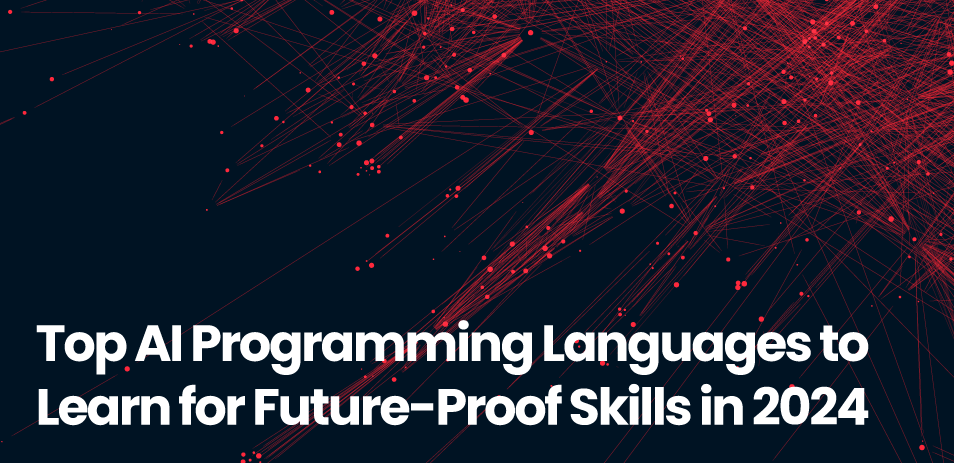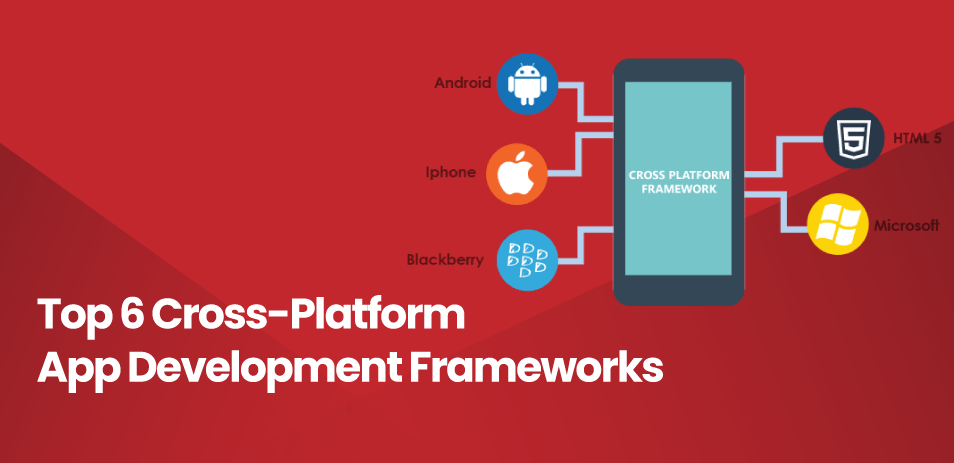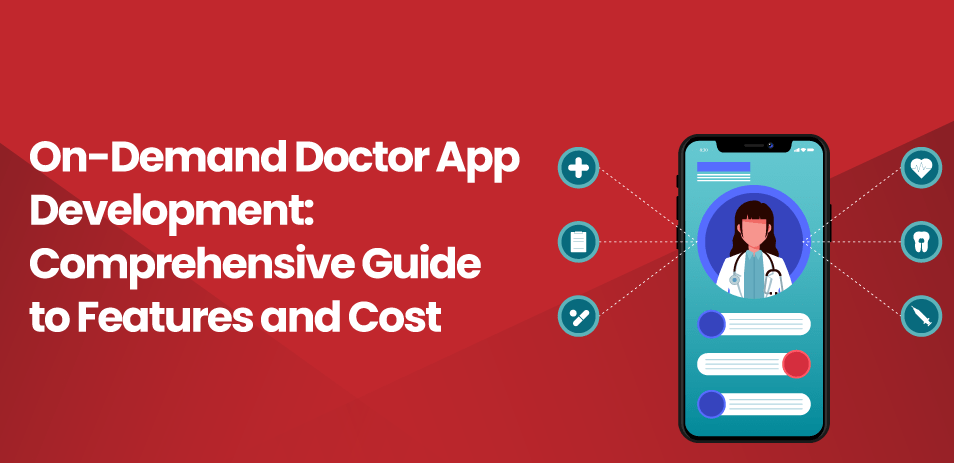Overview
The fusion of artificial intelligence (AI) and social media has become a game-changer. As we navigate through this dynamic landscape, it’s crucial to understand the profound impact AI is having on the way we connect, share, and engage in the virtual realm. AI has woven itself into the very fabric of how we interact online. From the moment you log in, algorithms are working tirelessly behind the scenes, analyzing your every click, like, and comment. This vast ocean of data fuels the AI engine, shaping your social media experience in ways you might not even realize.
AI in social media is not just about personalized feeds and targeted ads. It’s about revolutionizing the way we connect, create, and consume information. Think about chatbots that answer your questions 24/7, content moderation algorithms that fight misinformation and virtual reality experiences that blur the lines between the digital and physical worlds.
In this blog, we’ll embark on a deep dive into the fascinating world of artificial intelligence in social media. We’ll explore its applications, from content curation to marketing, and delve into the ethical considerations that come with wielding such powerful algorithms. We’ll also peek into the future, pondering the possibilities and challenges and how social media app development company can help you.
AI Applications in Social Media
I- The Role of AI in Content Curation
Personalized Content Recommendations
One of the most noticeable ways AI is reshaping social media is through personalized content recommendations. Algorithms fueled by machine learning analyze user behavior, preferences, and interactions to curate a tailored feed. Whether it’s Facebook suggesting friends or Instagram displaying posts based on interests, AI is the driving force behind these recommendations. This not only enhances user experience but also keeps users engaged by providing content that aligns with their interests.
Algorithmic Timeline Optimization
The chronological timeline is now a relic of the past. AI has ushered in algorithmic timeline optimization, where platforms prioritize content based on relevance. Twitter, for instance, employs AI to showcase tweets that are likely to be of interest to users, fostering increased engagement. While some users may resist this departure from chronological order, the majority benefit from a more personalized and engaging feed.
Impact on User Engagement and Satisfaction
The ultimate goal of these AI-driven content curation methods is to boost user engagement and satisfaction. Social media platforms aim to keep users on their platforms longer, and AI plays a pivotal role in achieving this. By providing content that resonates with users, platforms can increase user satisfaction, leading to higher retention rates and increased ad revenue.
II- AI-Powered Social Listening
Definition and Significance of Social Listening
Social listening involves monitoring and analyzing online conversations to gain insights into public sentiment, brand perception, and emerging trends. AI-powered social listening takes this concept to new heights, enabling platforms and businesses to sift through vast amounts of data in real time. This not only provides a comprehensive understanding of user sentiment but also helps identify potential issues and opportunities.
How AI Enhances Social Listening Capabilities
Traditional social listening tools can be limited in their ability to process and analyze large datasets effectively. AI addresses this limitation by utilizing natural language processing (NLP) and machine learning algorithms. These technologies enable platforms to understand context, sentiment, and even user intent, providing a more nuanced and accurate analysis of online conversations.
Examples of Successful Implementations and Insights Gained
Several platforms have successfully implemented AI-powered social listening to extract valuable insights. For instance, brands can now gauge public reaction to their products or campaigns in real time, allowing for immediate adjustments to marketing strategies. Additionally, AI can identify emerging trends and topics, helping businesses stay ahead of the curve in a rapidly evolving digital landscape.
III- Chatbots and Customer Service
Rise of AI-Driven Chatbots in Social Media Platforms
The integration of AI-driven chatbots into social media platforms has revolutionized customer service. These virtual assistants are capable of handling a wide range of customer queries and issues, providing instant responses 24/7. Whether it’s answering frequently asked questions or guiding users through troubleshooting processes, AI-driven chatbots enhance efficiency and accessibility.
Improving Customer Service Through AI
AI-powered customer service goes beyond automated responses. Natural language understanding allows chatbots to comprehend and respond to user queries conversationally. This not only improves the user experience but also frees up human agents to handle more complex issues, leading to faster response times and overall customer satisfaction.
Balancing Automation with Human Touch
While AI-driven chatbots offer efficiency, it’s essential to strike a balance between automation and the human touch. Some queries may require the empathy and understanding that only a human agent can provide. Striking this balance ensures that customer service remains not just efficient but also personalized and responsive to the diverse needs of users.
IV- Influencer Marketing and AI
Identifying and Engaging Influencers with AI
In the realm of influencer marketing, AI plays a pivotal role in identifying the right influencers for brands. Machine learning algorithms analyze vast amounts of data, including audience demographics, engagement metrics, and content relevance, to pinpoint influencers whose audience aligns with a brand’s target market. This data-driven approach enhances the effectiveness of influencer partnerships.
Predictive Analytics for Influencer Partnerships
AI doesn’t stop at identification; it extends to predictive analytics for influencer partnerships. Algorithms can forecast the potential success of a collaboration based on historical data, engagement patterns, and market trends. This predictive capability empowers brands to make informed decisions, optimizing their return on investment in influencer marketing campaigns.
Measuring the Success of AI-Driven Influencer Campaigns
The success of influencer campaigns is no longer measured solely by likes and shares. AI enables a deeper analysis of campaign impact, considering factors such as brand sentiment, conversion rates, and long-term brand perception. This data-driven approach allows brands to refine their influencer strategies and maximize the effectiveness of future campaigns.
V- Enhanced Data Analytics
Utilizing AI for Social Media Analytics
Data analytics has always been a cornerstone of social media strategy, but AI takes it to a new level. Platforms leverage AI to process and analyze massive datasets rapidly, providing actionable insights for users and businesses. From understanding user behavior to tracking the performance of marketing campaigns, AI-driven analytics tools offer a comprehensive view of social media metrics.
Extracting Actionable Insights from Large Datasets
The sheer volume of data generated on social media platforms can be overwhelming, making it challenging to extract meaningful insights manually. AI excels in processing large datasets, identifying patterns, and extracting actionable insights. This empowers businesses to make informed decisions, refine strategies, and stay agile in a competitive digital landscape.
Predictive Analytics for Trend Forecasting
AI’s predictive capabilities extend beyond influencer marketing to trend forecasting. By analyzing historical data and user behavior, algorithms can identify emerging trends before they become mainstream. This foresight allows businesses to proactively adjust their strategies, ensuring they stay relevant and ahead of the curve in a rapidly evolving digital landscape.
VI- AI and User Privacy
Concerns and Challenges Related to AI and User Privacy
The integration of AI in social media comes with its share of concerns, particularly regarding user privacy. The collection and analysis of vast amounts of user data raise questions about how this information is used, stored, and shared. As AI algorithms become more sophisticated, the potential for invasive profiling and misuse of personal information becomes a growing concern among users and privacy advocates.
Strategies for Ensuring Responsible AI Usage in Social Media
To address privacy concerns, platforms, and businesses must adopt strategies that prioritize responsible AI usage. This includes transparent data policies, clear user consent mechanisms, and robust security measures to protect user information. Striking a balance between personalized user experiences and respecting privacy rights is crucial to building trust in AI-powered social media interactions.
The Role of Regulations and Ethical Considerations
Governments and regulatory bodies play a crucial role in shaping the ethical landscape of AI in social media. Establishing and enforcing regulations that safeguard user privacy and ensure ethical AI practices are essential. Ethical considerations should be embedded in the development and deployment of AI algorithms, with a focus on transparency, accountability, and user empowerment.
VII- Understanding Voice and Speech Recognition
Defining Voice and Speech Recognition
Voice and speech recognition refers to the technologies that enable machines to interpret and understand human speech. Unlike traditional input methods such as typing or tapping, voice recognition allows users to interact with devices through spoken words. This technology relies on sophisticated algorithms and artificial intelligence (AI) to analyze and interpret the nuances of human speech.
How Voice Recognition Differs from Speech Recognition
While often used interchangeably, voice and speech recognition have distinct characteristics. Voice recognition specifically focuses on identifying and authenticating an individual based on their unique vocal patterns. On the other hand, speech recognition involves the broader task of converting spoken language into text or commands, enabling hands-free interaction with devices.

Benefits of AI in Social Media
Artificial Intelligence (AI) has become an integral part of social media platforms, offering a multitude of benefits that enhance user experiences, streamline operations, and provide valuable insights for businesses. Let’s delve into the detailed benefits of AI in social media:
1. Personalized Content Recommendations:
- Enhanced User Engagement: AI algorithms analyze user behavior, preferences, and interactions to deliver personalized content recommendations. This not only keeps users engaged but also fosters a sense of relevance, leading to increased time spent on the platform.
- Improved User Satisfaction: By tailoring content to individual interests, AI contributes to a more satisfying user experience. Social media platforms can leverage AI to understand user preferences, suggesting relevant posts, connections, and advertisements.
2. Social Listening and Sentiment Analysis:
- Real-time Insights: AI-driven social listening tools can monitor vast amounts of data in real time, providing businesses with immediate insights into public sentiment, brand perception, and emerging trends. This real-time analysis is invaluable for proactive decision-making.
- Brand Reputation Management: By understanding public sentiment, businesses can proactively manage their brand reputation. AI helps identify potential issues before they escalate, allowing for swift responses and crisis mitigation.
3. Efficient Customer Service with Chatbots:
- 24/7 Availability: AI-powered chatbots enable continuous and instant customer support, enhancing the accessibility of services. Users can receive assistance, information, and solutions at any time, contributing to improved customer satisfaction.
- Cost-Efficiency: Automating routine customer service tasks with AI-driven chatbots reduces the workload on human agents, allowing businesses to allocate resources more efficiently. This results in cost savings while maintaining a high level of service.
4. Influencer Marketing Optimization:
- Data-Driven Influencer Selection: AI analyzes vast datasets to identify influencers whose audience aligns with a brand’s target market. This data-driven approach ensures more effective partnerships and increases the likelihood of reaching the desired audience.
- Performance Prediction: Predictive analytics powered by AI can forecast the potential success of influencer collaborations. This allows brands to optimize their influencer marketing strategies, maximizing return on investment.
5. Enhanced Data Analytics:
- Comprehensive Insights: AI processes large datasets at high speeds, extracting actionable insights from user behavior, content performance, and engagement metrics. This enables businesses to make informed decisions and refine their social media strategies.
- Trend Forecasting: Predictive analytics, fueled by AI, can identify emerging trends before they become mainstream. Businesses can stay ahead of the curve by adapting their content and marketing strategies based on these predictive insights.
6. Automation of Repetitive Tasks:
- Time Savings: AI automates repetitive and time-consuming tasks, allowing social media managers to focus on more strategic and creative aspects of their roles. This improves overall productivity and efficiency in social media management.
- Consistent Posting and Scheduling: AI-powered tools can analyze optimal posting times and schedule content accordingly. This ensures a consistent online presence, even during non-business hours, catering to global audiences.
7. Enhanced User Security:
- Fraud Detection: AI algorithms can identify and prevent fraudulent activities, such as fake accounts and malicious activities. This contributes to a safer online environment for users and helps maintain the integrity of social media platforms.
- Authentication and Verification: AI-based security features, such as facial recognition and biometric authentication, enhance user account security. Verification processes powered by AI help ensure the authenticity of user identities.
8. Hyper-Personalized Advertising:
- Targeted Advertising: AI analyzes user data to create detailed user profiles, allowing businesses to deliver highly targeted and relevant advertisements. This increases the likelihood of conversions and improves the overall effectiveness of advertising campaigns.
- Dynamic Content Optimization: AI algorithms continuously optimize ad content based on user interactions and preferences. This dynamic approach ensures that advertisements remain engaging and aligned with user interests.
Crafting Your Ideal Mobile App/Experience Starts Here!
Ready to elevate your business? Your custom app is just a click away.
Yes Let’s goTips for Implementing AI in Social Media
AI is rapidly transforming the landscape of social media, offering exciting opportunities for brands, businesses, and even individuals to improve their online presence and engage with audiences in more meaningful ways. However, navigating the intricacies of AI implementation can be daunting. Here are some key tips to guide you:
1. Define Your Goals
Before diving into AI tools, clearly define your objectives. What do you hope to achieve with AI? Is it increased brand awareness, improved customer service, more engaging content, or optimized ad campaigns? Having a specific goal will help you choose the right AI tools and track your progress.
2. Start Small And Experiment
The world of AI can be overwhelming. Instead of trying to implement everything at once, begin with small, targeted initiatives. Experiment with different AI tools and see what works best for your goals and audience. This iterative approach allows you to learn from your experiences and avoid costly mistakes.
3. Choose The Right AI Tools
Not all AI tools are created equal. Research and compare different options based on your specific needs and budget. Consider factors like the platform’s ease of use, its feature set, and its integration capabilities with your existing tools.
4. Prioritize Data Quality And Security
AI algorithms are only as good as the data they’re trained on. Ensure you have high-quality, relevant data to fuel your AI initiatives. Additionally, prioritize data security and user privacy. Be transparent about how you collect and use data, and implement robust security measures to protect user information.
5. Focus On Human-AI Collaboration
AI is a powerful tool, but it’s not a replacement for human intelligence and creativity. Remember, AI thrives on human guidance and oversight. Foster a collaborative environment where humans and AI work together to achieve the best outcomes.
6. Measure And Refine Your Approach
Regularly track and analyze the performance of your AI initiatives. What’s working well? What needs improvement? Use data insights to refine your approach and optimize your AI tools for better results.
7. Stay Informed And Adaptable
The field of AI is constantly evolving. Stay up-to-date on the latest trends and advancements to ensure you’re leveraging the most effective tools and strategies. Be prepared to adapt your approach as new technologies and best practices emerge.
By following these tips, you can navigate the exciting world of AI in social media and unlock its potential to transform your online presence and achieve your goals. Remember, AI is a powerful tool, but it’s important to use it responsibly and ethically to create a positive and enriching social media experience for everyone.
The Future of AI in Social Media
Gazing into the crystal ball of social media, we see a future shimmering with the possibilities of AI. Beyond the current applications, novel trends and innovations are bubbling just beneath the surface, poised to alter how we interact and communicate online fundamentally.
Emerging Trends and Innovations:
- Sentiment Analysis: Imagine a world where social media platforms understand the emotions behind your posts and comments. AI-powered sentiment analysis can identify anger, joy, or sarcasm, enabling platforms to provide personalized support, promote empathy, and even flag potentially harmful content before it escalates.
- VR Integration: Social media is no longer confined to flat screens. Virtual reality integration powered by AI will create immersive experiences where we can connect with friends, attend virtual events, and explore shared digital worlds. AI can personalize these experiences, tailoring environments and interactions to individual preferences.
- Personalized Content Creation: Forget algorithms simply curating existing content. AI will soon write articles, generate music, and even create videos tailored to your specific tastes. Imagine AI poetry inspired by your favorite author or a personalized workout video perfectly synced to your fitness level.
- Hyper-local Connection: AI can bridge the gap between online and offline worlds. By analyzing your location and interests, AI-powered apps can connect you with events, businesses, and even people in your immediate vicinity, fostering real-world interactions fueled by the power of online connection.
Role of AI in Future Interactions
These advancements will fundamentally reshape how we communicate and interact on social media. AI can facilitate deeper connections, fostering empathy and understanding through sentiment analysis and personalized experiences. It can also break down language barriers, enabling real-time translation and facilitating cross-cultural communication.
Limitations and Challenges:
However, this AI-powered future is not without its challenges. Bias woven into algorithms can perpetuate societal inequalities, and concerns about data privacy loom large. The potential for manipulation through targeted content and echo chambers is also a pressing issue. Addressing these challenges head-on will be crucial for ensuring a responsible and equitable future for AI in social media.
Ethical Considerations and Regulations:
To steer this technological wave in the right direction, robust ethical frameworks and regulations are essential. These frameworks should prioritize transparency, fairness, and accountability in AI development and implementation. Protecting user privacy, mitigating bias, and establishing clear guidelines for content moderation are all crucial aspects of ethical AI in social media.
Human-AI Collaboration:
The future is not about humans being replaced by AI but rather about harnessing its power to augment our capabilities. Human oversight and intervention will remain critical in complex decision-making, especially concerning content moderation and ethical considerations. The key lies in forging a collaborative relationship where AI strengthens human intuition and judgment, leading to responsible and enriching social media experiences.
A Glimpse of the Future:
The future of AI in social media is a canvas teeming with possibilities. By embracing its potential while staying mindful of the challenges, we can paint a vibrant picture of a more connected, empathetic, and informed online world. Remember, the brush is in our hands – let’s ensure we use it to create a future where AI empowers us to connect, design, and communicate in ways we can only begin to imagine.
Crafting Your Ideal Mobile App/Experience Starts Here!
Ready to elevate your business? Your custom app is just a click away.
Yes Let’s goConclusion
As we conclude our exploration into the realms where artificial intelligence (AI) intertwines with the vibrant tapestry of social media, it becomes evident that we stand at the precipice of a profound transformation. The marriage of AI and social media has ushered in a new era where personalized experiences, efficient communication, and data-driven decision-making redefine the landscape.
The benefits of AI in social media are manifold, and their impact reverberates across user interactions, brand strategies, and the very fabric of online communities. Personalized content recommendations have not only elevated user engagement but have also become the bedrock of user satisfaction. The tailored, AI-driven feeds that greet users on their favorite platforms are testaments to the power of algorithms in understanding, predicting, and fulfilling individual preferences.
The trajectory of AI in social media continues to unfold, promising more innovations, more refined experiences, and more intricate symbioses between human expression and machine intelligence. As we step forward into this ever-evolving landscape, the journey is not just about technology; it’s about the profound ways in which AI and social media together shape the digital societies we inhabit.
Get in touch with AppVerticals
In today’s world, social media is really important for talking to others online. It’s not just a choice anymore to use artificial intelligence in your social media plans; it’s something you have to do. AppVerticals is a top mobile app development company in making AI technology. We can work with you to use AI to complete your social media app better. Whether you want a completely new app or want to add new AI features to your existing app, our experts can help you. They can make sure the changes meet your business needs and give you the most value in this fast-changing world.








